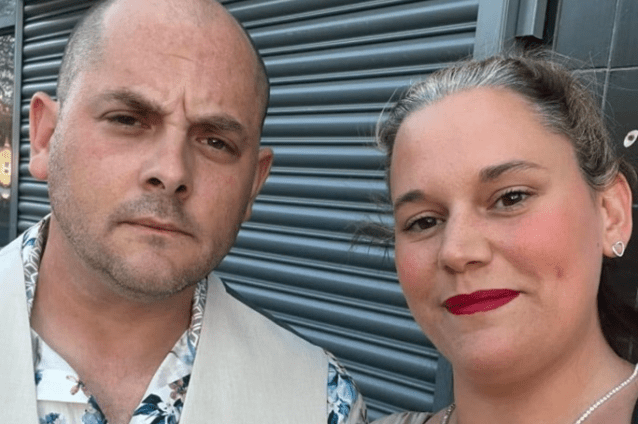Despite losing two children to terminal illnesses, a heartbroken couple’s plea to use funds raised for their late son to help their terminally ill daughter has been refused by the High Court.
In a harrowing tale that has moved the nation, grieving parents Craig Evison and Victoria Morrison have been denied their request to access nearly £100,000 in charity donations originally raised for their late son, Kyle Morrison, who passed away from a rare childhood brain cancer in 2020.
Kyle, a bright, Lego-loving nine-year-old, was diagnosed with diffuse intrinsic pontine glioma (DIPG) in 2019. With limited treatment options in the UK, a Facebook campaign rallied thousands of well-wishers to raise funds for treatment in the United States.
The effort eventually passed to Essex-based charity Gold Geese, which supports children battling cancer.
But Kyle never made it to the US. The Covid-19 pandemic halted travel plans, and as restrictions eased, his health had deteriorated. He died in October 2020.
“At the heart of this case is a little boy, Kyle Morrison, who died in October 2020, aged just nine years old. He suffered from a rare and aggressive childhood brain stem cancer,” said Deputy Master Marc Glover during his ruling.
New Hope, New Heartbreak
In 2022, the couple, who live in Cheshunt, Hertfordshire, welcomed a daughter, Ruby-Rose. But tragedy struck again; she was diagnosed with MEGDEL syndrome, a severe genetic metabolic disorder with no cure and little hope for survival beyond infancy.
Desperate to make lasting memories with their daughter, perhaps on one final trip to Disney World, the couple launched a fresh fundraiser.
At the same time, they asked Gold Geese to release the unused £100,000 raised for Kyle’s treatment to help fulfil Ruby-Rose’s final wishes.
Legal Battle Over Donations
Gold Geese declined. Their reason? The charity’s mandate is to support children with cancer, not other conditions like MEGDEL syndrome. And since Ruby-Rose doesn’t have cancer, they claimed their hands were tied.
“Gold Geese is a cancer charity, it’s on its logo… it wouldn’t be proper for Gold Geese to stray outside the illness of child cancer,” said barrister William Moffett.
The case went to London’s High Court, where Victoria and Craig, representing themselves, pleaded that the money be used to “make as many memories as we can” with their daughter.
They argued the original agreement included a clause stating that if Kyle didn’t survive, the money could benefit a child in a “similar position.”
They believed Ruby-Rose, terminally ill and under two years old, fit that definition.
But the court saw things differently. Deputy Master Glover found that donors had contributed on the clear understanding that the funds would be used for Kyle’s cancer treatment or other DIPG-related causes.
“The campaign made clear to donors that in the event of his passing any funds would be distributed between other DIPG charities,” the judge stated.
Despite the outpouring of public support, Victoria had submitted letters and emails from donors backing their request, the court ruled that sentiment could not override the law.
“Whilst that desire is understandable, it cannot inform the finding of the court [as to the] desire of the donors when donating to the fund,” he added.
Where the Funds Will Go
The court determined that:
- The remaining funds will be divided between two charities supporting DIPG sufferers and research.
- Some money was previously used for Kyle’s funeral.
- A portion may be used for a memorial bench in Kyle’s name, as requested by his father.
- Gold Geese was not granted costs against the family, and will recover its legal fees from the fund.
“This judgment will come as a disappointment to Victoria and Craig. No person can help but be moved by their experience and the tragic loss of Kyle,” the judge acknowledged.
A Tragic Story That Touched Thousands
This heart-wrenching story has captured the attention and compassion of thousands across the UK. While the legal outcome may seem cold, it underscores the complexity of charitable fundraising, donor intent, and legal obligations.
For the Morrison family, the ruling brings another cruel blow. First, losing Kyle. Then, learning their daughter is facing a similar fate. Now, a final wish to give Ruby-Rose magical memories denied—not by lack of will, but by law.
In the words of the court: “All parties’ ambitions for the fund are decent and honourable.”
Indeed, no one questions the Morrison family’s love, nor the donors’ generosity. This was not about bad actors. Just a system bound by rules, even when hearts break.
Their story has already raised awareness of DIPG and the devastating impact of MEGDEL syndrome. Perhaps that, in time, will be their true legacy.






